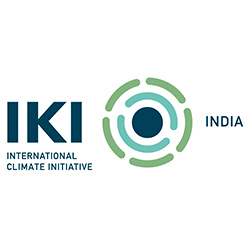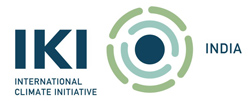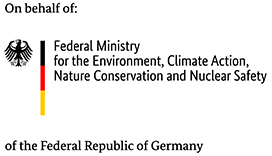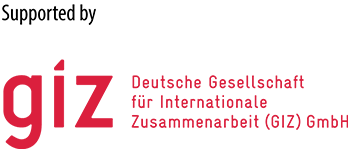Mitigation of Climate Change
IKI provides support to partner countries for developing and implementing innovative instruments for mitigating their greenhouse gas emissions. The ultimate goal is to transform economic and supply structures so that they are sustainable and carbon-neutral. At the level of political governance, nationally determined contributions (NDCs) and long-term strategies (LTS) are essential tools. The IKI also supports the development of systems for measurement, reporting and verification (MRV) of greenhouse gas emissions and mitigation activities. A large number of projects also pursue the goal of mobilising public and private capital for climate change mitigation. The mitigation funding area addresses policy consulting, capacity building and training measures, as well as cooperation on technologies.
Know MoreProjects

Energy Efficient Cooling Completed
Project Lead: Nitin JainThe building cooling sector in India mainly uses decentralized individual systems that have high levels of energy consumption and use climate-damaging refrigerants. The government, working together wi...
Read More →

Energy Storage for Renewable Energy Integration in India (StoREin) On-going
Project Lead: Bernhard VoelckerIndia aims to integrate a total of 500 gigawatts of non-fossil energy capacity by 2030. In support of this goal, the project is focused on creating favorable framework conditions for the introduction ...
Read More →

Ensuring the Transparency of Subnational Climate Change Mitigation Measures in Developing and Emerging Countries Completed
Project Lead: Sunandan TiwariMRV for transparency is a crucial foundation for policy-making within the framework of the Paris Agreement, extending to subnational levels. The first phase of the project supported state governments ...
Read More →

From NDCs to Pathways and Policies: Transformative Climate Action After Paris Completed
Project Lead: Marta Torres GunfausThe Parties to the Paris Agreement are committed to submitting more ambitious Nationally Determined Contributions (NDCs) every five years from 2020 onwards to limit global warming to as little as 1.5�...
Read More →

Gender into Urban Climate Change Initiative (GUCCI) Completed
Project Lead: Gotelind AlberEffective climate policy requires gender mainstreaming and increased participation of women in planning and implementing climate protection strategies. The project involved cooperation with experience...
Read More →

Global Climate Partnership Fund On-going
To limit global heating and mitigate the impacts of climate change, investments in energy efficiency, renewables, and measures that reduce greenhouse gas emissions are essential. The Global Climate Pa...
Read More →

Global PPP Programme II Completed
Project Lead: Yvonne VethPrivate investment and climate-friendly technologies are crucial for building a climate-friendly economy in emerging and developing countries. Therefore, the Climate Partnership Programme mobilised th...
Read More →

Green Banking - Capacity Building for Green Energy and Climate Finance On-going
In developing and emerging countries, financial resources for expanding sources of renewable energy and for energy efficiency measures are often lacking, since banks and investors lack expertise in su...
Read More →

Green Freight India Completed
Project Lead: Daniel MoserIndia’s freight transport sector offers enormous potential for climate mitigation and sustainable economic development by increasing its efficiency, shifting road-based freight to railways and s...
Read More →

India Sustainable Mobility Initiative On-going
Project Lead: Aswathy DilipTo provide efficient mobility for the 200 million new urban dwellers expected by 2030 and mitigate the use of private vehicles and GHG emissions, India must achieve a dramatic increase in high-quality...
Read More →
Copyright © 2026 All rights reserved




